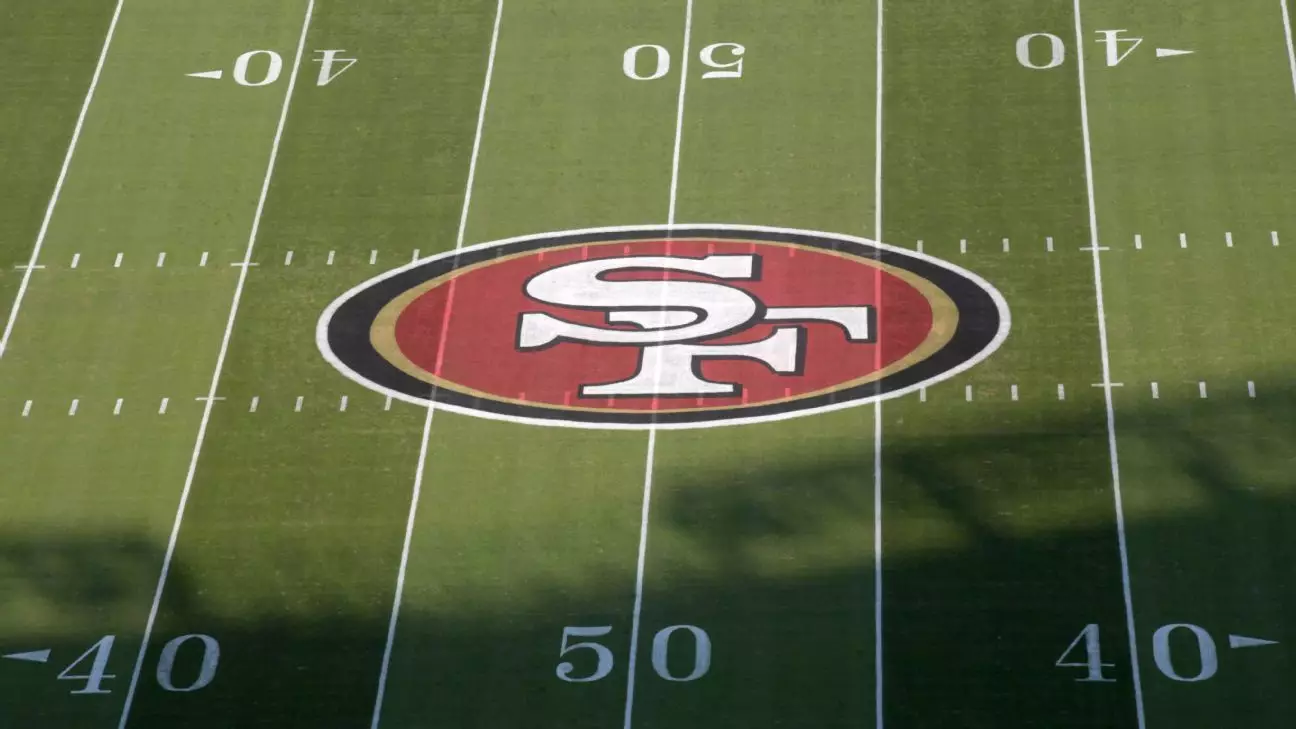Historic Transformation: 49ers Prepare for Radical Ownership Change
There’s something truly thrilling about being on the cusp of transformation, and that’s exactly where the San Francisco 49ers find themselves today. As a cornerstone of the National Football League (NFL), this team has long been a symbol of excellence and innovation. Yet, as with any great legacy, there comes a time when change is not just inevitable but essential. The impending shift in the franchise’s ownership could redefine not only the 49ers but also set a new standard for professional sports ownership.
I remember when I first became a 49ers fan; it was the kind of team that drew you in with its rich history and vibrant community. Today, as they stand at the brink of selling more than 6% of the team to prominent Bay Area families, I’m reminded that evolution is part of every great story. It’s fascinating to think how this decision could shape not just the team’s future but influence ownership models across sports. Sometimes, it’s these pivotal moments that reignite our passion and connection to something we love.
For those who share my love for football or simply enjoy witnessing historic transformations, this is an exciting time. The potential sale represents more than just a change in ownership; it’s a chance to explore what new perspectives and strategies can bring to a franchise already known for its competitive spirit. Let’s delve deeper into what this means for the 49ers and the broader landscape of professional sports.
Key Takeaways
- The 49ers are poised to sell over 6% to Bay Area families, including Khosla, Deeter, and Griffith.
- This move could redefine financial landscapes and operational strategies within the franchise.
- Venture capital involvement may introduce fresh ideas and dynamic changes.
- The shift mirrors broader trends in NFL ownership models towards more diversified stakeholder involvement.
The Stakes and the Buyers
Let’s take a closer look at who’s potentially stepping into this historic role. The prospective buyers are none other than the Khosla, Deeter, and Griffith families. While their names might not be familiar to everyone outside investment circles, they bring significant venture capital experience to the table. The Khoslas are poised to acquire 3.1%, the Deeters 2.1%, and the Griffiths 1% of the team. With an estimated valuation exceeding $8.5 billion, this deal isn’t just another transaction—it’s set to become the largest-ever deal for a sports franchise.
These families aren’t merely looking to own a piece of the storied franchise; they’re aligning their business acumen with one of football’s most iconic brands. Venture capitalists are known for their strategic foresight and innovation-driven approaches, which could breathe new life into the 49ers’ operations. It’s an exciting possibility that such involvement could usher in transformative change, enhancing both on-field performance and off-field strategies.

York’s Mixed Signals
Jed York, at the helm of the current ownership, has approached this potential sale with calculated caution. He describes it as “a family asset allocation decision,” highlighting a delicate balance between various family interests and aspirations. This scenario is not uncommon among multi-generational ownership groups who grapple with preserving legacy while adapting to evolving market dynamics. For York, finding partners who can augment his vision without compromising family ties seems paramount.
However, York’s phrase “opportunity that makes sense” introduces an element of hesitance. It suggests an internal struggle between embracing new opportunities and maintaining a deep-rooted heritage with the franchise. Balancing these elements is no small task in a league as competitive as the NFL. How York navigates this will likely influence not only his family’s legacy but also set a precedent for how traditional sports ownership models evolve.

Implications for the League
The potential sale within the 49ers organization isn’t happening in isolation; it echoes similar trends across the NFL landscape. For instance, consider how the Los Angeles Chargers are also exploring stakeholder diversification by selling an 8% stake to private investors. This reflects an industry-wide shift towards collaborative ownership models involving multiple stakeholders committed to long-term visions rather than personal endeavors alone.
Such changes promise innovation and fresh perspectives crucial in leagues thriving on competition both on-field and off-field. As teams adapt more readily amidst economic uncertainties through diversified stakeholder involvement—repercussions throughout leagues will reverberate deeply affecting fiscal health operational strategies moving forward.
Final Thoughts
This moment marks an exciting chapter not just for die-hard fans like us but also anyone interested in seeing how timeless traditions adapt amidst changing landscapes! As we eagerly await outcomes from these transactions during upcoming spring owners’ meetings—we should brace ourselves witnessing dynamic partnerships enriching beloved teams adding complexity excitement electrifying prospect professional football!
The San Francisco 49ers’ journey through this historic transformation offers valuable insights into broader shifts occurring within sports ownership—a reminder embracing change often leads remarkable growth opportunity beyond our expectations!
San Francisco 49ers
NFL ownership
venture capital
sports franchise
team management


Leave a Reply